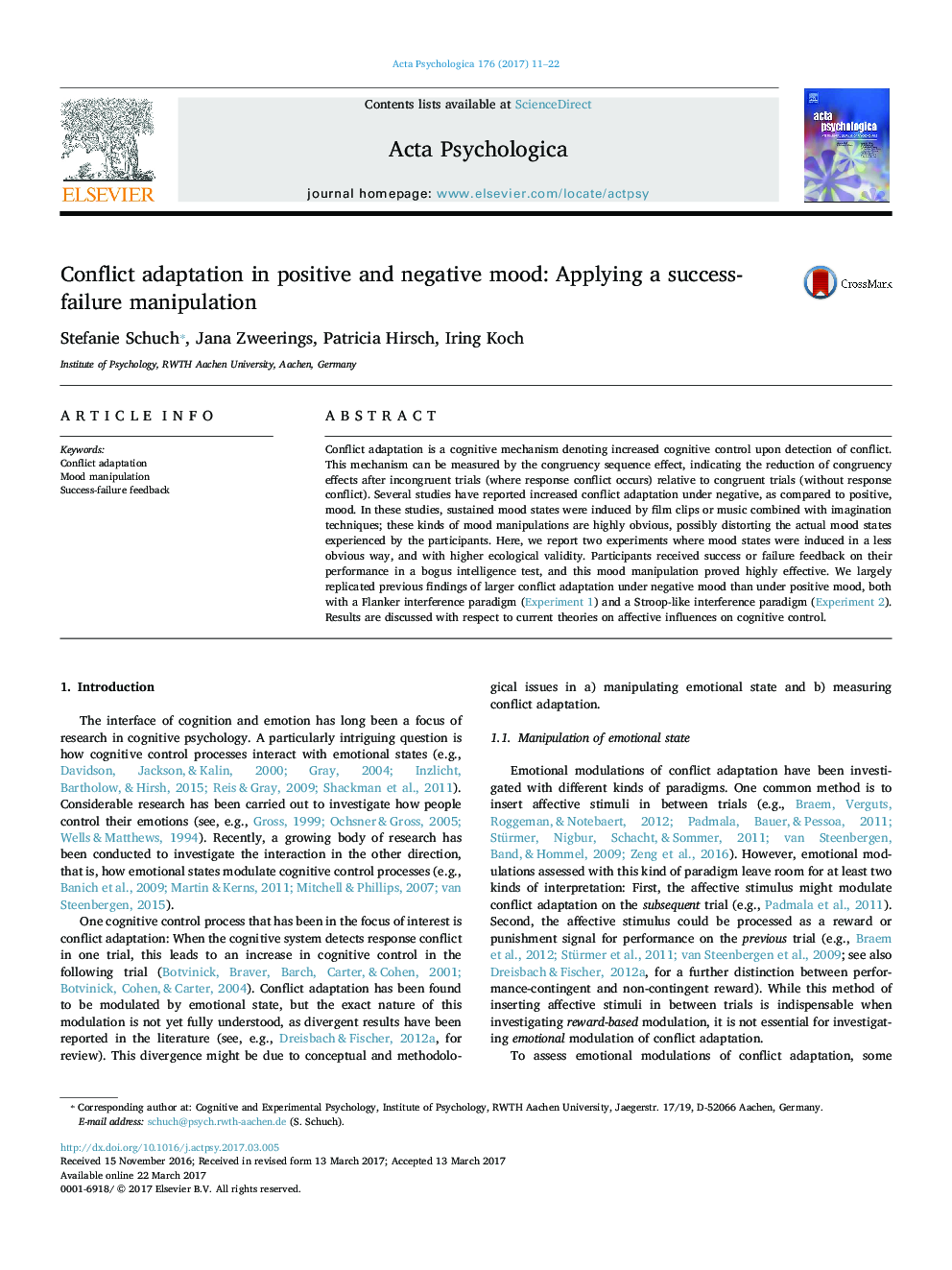| کد مقاله | کد نشریه | سال انتشار | مقاله انگلیسی | نسخه تمام متن |
|---|---|---|---|---|
| 5040203 | 1473582 | 2017 | 12 صفحه PDF | دانلود رایگان |
- Conflict adaptation was measured in a Flanker and a Stroop-like interference paradigm.
- Positive vs negative mood state was induced by a success vs failure manipulation.
- Subjects received false feedback on their performance in a bogus intelligence test.
- Conflict adaptation was larger in negative mood group than in positive mood group.
Conflict adaptation is a cognitive mechanism denoting increased cognitive control upon detection of conflict. This mechanism can be measured by the congruency sequence effect, indicating the reduction of congruency effects after incongruent trials (where response conflict occurs) relative to congruent trials (without response conflict). Several studies have reported increased conflict adaptation under negative, as compared to positive, mood. In these studies, sustained mood states were induced by film clips or music combined with imagination techniques; these kinds of mood manipulations are highly obvious, possibly distorting the actual mood states experienced by the participants. Here, we report two experiments where mood states were induced in a less obvious way, and with higher ecological validity. Participants received success or failure feedback on their performance in a bogus intelligence test, and this mood manipulation proved highly effective. We largely replicated previous findings of larger conflict adaptation under negative mood than under positive mood, both with a Flanker interference paradigm (Experiment 1) and a Stroop-like interference paradigm (Experiment 2). Results are discussed with respect to current theories on affective influences on cognitive control.
Journal: Acta Psychologica - Volume 176, May 2017, Pages 11-22
